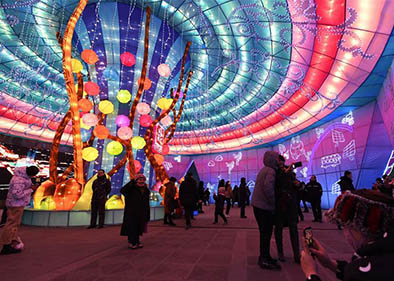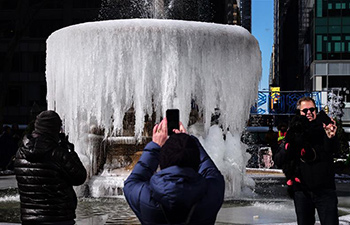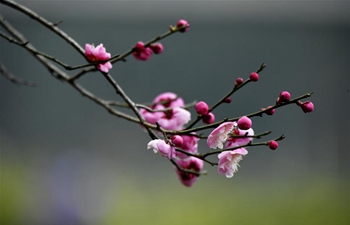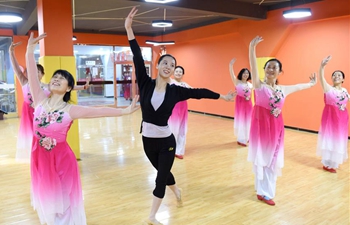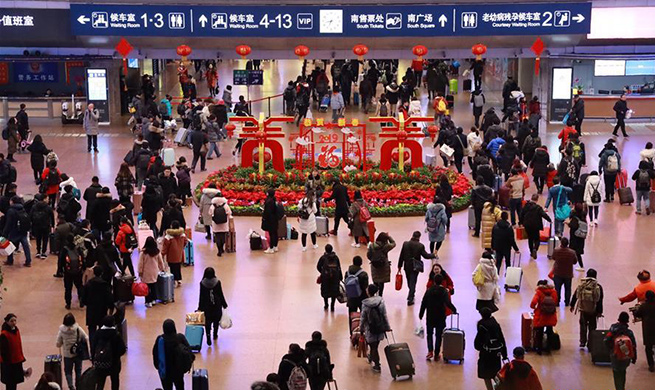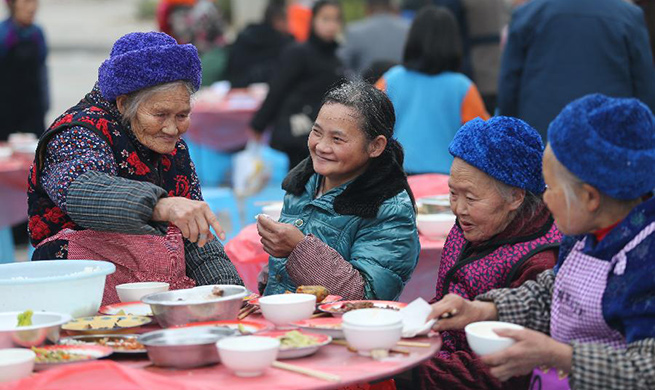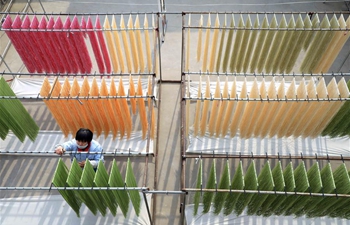NANNING, Feb. 1 (Xinhua) -- In a backstreet Vietnamese eatery "Mifeizhai" near Guangxi University, Vi Anh Duc and Luc Thi Kieu tell of the many common features of Spring Festival in China and Vietnam. Peoples of both sides buy flowers, light firecrackers and put up well-wishing couplets on doors. Most importantly, they feel the same strong urge of going home.
"Vietnamese have the same tradition of going home for family gatherings in Spring Festival, no matter where we are," said Vi, a student in China's Guangxi Zhuang Autonomous Region.
In China, millions of travelers going home in the run-up to the Lunar New Year usually means arduous trips on crowded railways, buses and flights, but neither Vi or Luc seem very anxious about their journeys home.
"I can take a bus from Nanning (capital of Guangxi) in the morning and arrive in my hometown in the afternoon. I go back home five to six times a year," said Luc, a 19-year-old student hailing from Vietnam's Cao Bang.
For Vi, the distance between his university and home is just "six hours on the road." "I am already looking forward to meeting my friends and family at home," Vi said.
Guangxi, which borders Vietnam, is China's important gateway to Southeast Asia. The region's infrastructure take-off in recent years has meant more road and railway links with Vietnam. The regional capital Nanning now sends seven buses to Vietnam's Hanoi every day, and a high-speed railway was launched in 2014 to link it with the Chinese city of Fangchenggang along the China-Vietnam border.
The unprecedented connectivity has added to the bliss of the growing number of Vietnamese business people and over 3,200 foreign students in Guangxi, as they get ready for the upcoming festival.
The Nanning-Hanoi T8701/02 trains, China's second cross-border train service launched in 2009 after the Beijing-Moscow route, is now packed with Vietnamese passengers returning home.
"The train is inexpensive and convenient. It has become a top choice for Vietnamese business people and students when they go home," said one passenger Hoang Tuyen, who has done business in China for over 10 years.
A trip from Nanning to Hanoi takes about 11 hours on the train, which has all its signs and notices written in Chinese and Vietnamese.
Wei Feng, a conductor of the T8701/02 train, said each train on the railway has added two or three carriages in order to meet growing demands during the Spring Festival travel rush.
"Most carriages are fully occupied before the festival, though the development of highway transport and high-speed railway has made ticket rush buying and overcrowding carriages a thing of the past for our trains," Wei said.

